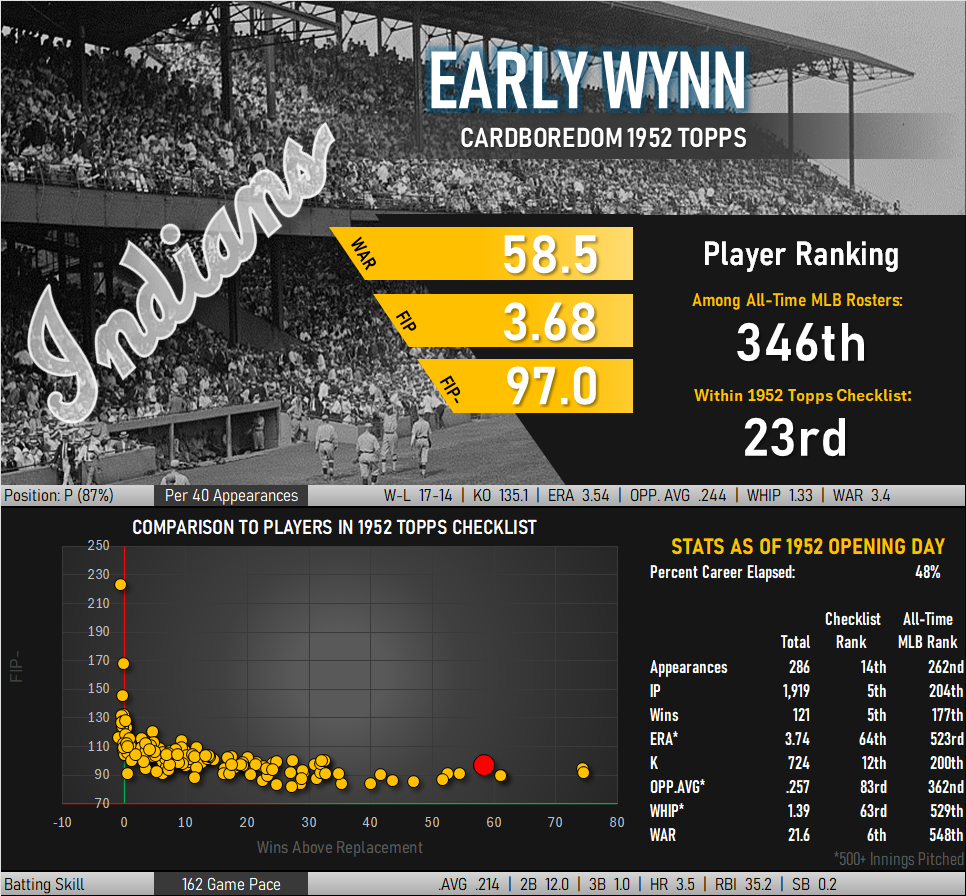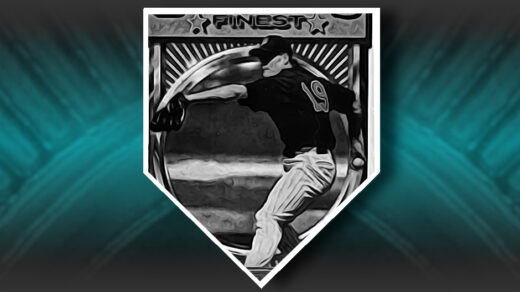Be careful when teaching someone a lesson: They just might learn it. Dropping out of high school to sign with the Washington Senators in 1939, Early Wynn found himself under the tutelage of manager Bucky Harris. Harris told the young right-hander to brush back hitters whenever he had two strikes on them and threatened to fine him $25 for every time he ignored the order. Wynn enthusiastically began sending batters into the dirt and continued to do so for decades after the threat of losing $25 disappeared.
Wynn, it seemed, was predisposed to throw at people. He often remarked that the pitcher’s mound and the space between batters’ boxes belonged to him and that anybody trespassing on these spaces would be summarily punished. This explanation, however, arrived after he began headhunting and would be joined by other excuses whenever the need for a new one became convenient.
He threw at batters who leaned over the plate. He threw at batters who hit the ball back up the middle towards him. He threw at two batters whenever a member of his own team was plunked. He threw at players who did well in batting practice, even extending this to a knock-down of his 15-year-old-son who had joined him for a day of fun at the ballpark. Wynn launched a fastball directly into Red Sox third baseman George Kell while Kell was leading off first base. Upset at being taken out of a tight ballgame, Wynn once threw at his manager Al Lopez as he approached to take the ball away.
Setting aside Wynn’s limited grasp of sportsmanship, he was one of the better pitchers of his time. He struck out more batters than any other player of the 1950s (1,544) and set a record for longevity by pitching in 23 seasons.

Despite his personal animosity towards batters, Wynn was no slouch in the batter’s box. He had a reputation for being a better hitter than most others at his position and was often called into games as a pinch hitter. He even smacked a grand slam during one of these pinch-hit appearances. Like most hurlers, he usually slotted into the ninth slot in the batting order. However, he is one of only a few dozen pitchers in MLB history to bat earlier in the lineup, having once been started in the sixth position.
Wynn’s Final Card
Early Wynn pitched in a then-record 23 seasons, winning a total of 300 games. Topps thought his career was done in 1963 and omitted him from that year’s checklist. Needing only a single victory to hit the magic total of 300 wins, he was picked up by the Cleveland Indians halfway through the ’63 season. He stuck around long enough to get no. 300 and retired at the end of the year.

While Topps missed the chance to recap Wynn’s career, baseball card collectors still had a parting piece of cardboard for the ’63 season. Post Cereals included the pitcher in its 1963 edition, placing him as a member of the Chicago White Sox despite Wynn not actually being a part of any team when the cards went into production. The card’s biographical text highlights his 299 career victories.
1952 Topps #277
Early Wynn appears in the moderately difficult to find fifth series of 1952 Topps. Wynn’s signature identifies him as “Gus” Wynn, a nickname that is referenced in the first sentence of the biography printed on the back of the card. Looking at the run of baseball cards produced during his multidecade career, I have not come across a single one that prints his name as Gus Wynn despite this having been an apparently well known nickname. The facsimile signature on his 1952 Bowman even omits the nickname completely. Another interesting aspect about the ’52 Topps card is the fact that it identifies the switch-hitting pitcher as batting “Rt. & Lft.”
This particular example brings my set to one-third completion. Usually a higher priced card, this one came cheap due to a pair of thumbtack holes near the top of the card and a very light crease near his hat. I love cards like this and hope to find more like it.










